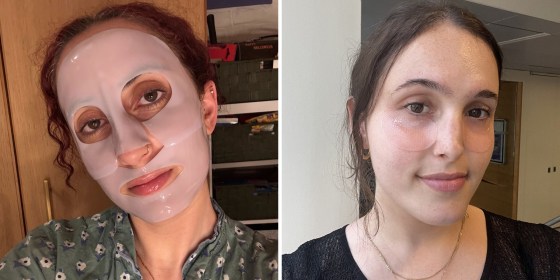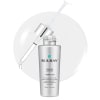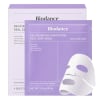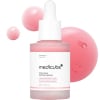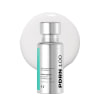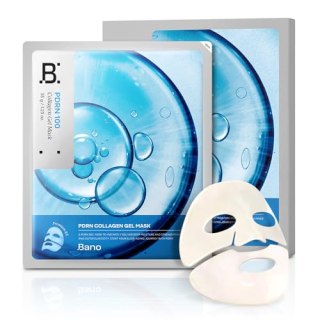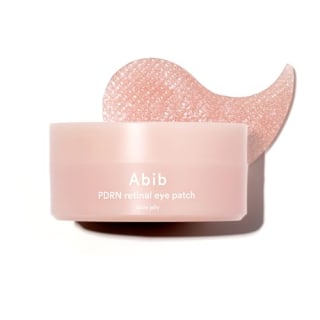There are plenty of beauty trends that sound unusual (we’ve covered onion shampoos and beef tallow as a moisturizer, to name a few), but rarely are they quite as jarring as “salmon sperm” facials. You may have heard celebrities and influencers touting treatments using salmon sperm, called PDRN (polydeoxyribonucleotide) in the science world as a “healer” for skin, leaving a plump, hydrated and youthful appearance.
But what exactly is PDRN, and is it safe? I spoke to board-certified dermatologists to answer all of your questions about the buzzy skin care trend. Below, I go into detail about why PDRN is gaining traction and what it can do for your skin. I also gathered expert-recommended and NBC Select editor-loved products that have PDRN in their formula.
PDRN is a molecule derived from salmon DNA that helps repair your skin barrier, reduce inflammation and improve elasticity. “It’s almost like giving your skin blueprints to rebuild itself,” says Dr. Mona Gohara, a board-certified dermatologist at Dermatology Physicians of Connecticut.
PDRN started gaining traction in the U.S. around 2022, but it has been in Asia (particularly South Korea) for over a decade for skin rejuvenation, wound healing and post-procedure recovery, says board-certified anesthesiologist and physician Dr. Azza Halim. “It is not entirely innovative; it was discovered by fishermen who used to put salmon semen on their wounds to help them heal faster,” says double board-certified dermatologist Dr. Purvisha Patel. “It’s been used in post-procedures for a few years and is now being put in daily skin care products.”
“There’s real science showing PDRN can stimulate wound healing and collagen production, but most of that data comes from medical use, like burns and ulcers, not beauty facials. So it’s promising, but the fountain-of-youth claims are a stretch,” says Gohara.
There are three main ways salmon sperm, or PDRN, is used in skin care: microinjections, microneedling and topicals.
Microinjections
Also called skin boosters, PDRN microinjections are shallow injections that help activate the skin’s repair pathways, calm inflammation, improve circulation and provide the building blocks for new cell growth, says Dr. Nicole Y. Lee, a board-certified dermatologist and owner of Epoch Dermatology. Though it’s not FDA-approved in the U.S., it’s the most common PDRN method in other countries like South Korea and Australia, says Halim. (FDA approval can take years to get, and it requires rigorous safety, quality and efficacy testing.) However, that doesn’t mean dermatologists don’t perform the procedure in their office — the ones who offer PDRN injections or microneedling do so using their own medical judgment and discretion, says Gohara.
Microneedling
This procedure is the most popular form for a “salmon sperm facial.” It involves creating small wounds or punctures in the top layer of the skin, so when a medical professional applies a PDRN serum immediately after microneedling, the serum penetrates deeper into the skin through those microchannels to boost hydration and skin elasticity (whereas microinjections involve using fine needles to inject PDRN directly into the skin). Like microinjections, microneedling with PDRN is also not yet FDA approved. “That’s why [PDRN] is used in derm offices post procedures for healing,” says Patel.
Topicals
Many brands, particularly K-beauty brands, sell over-the-counter, topical PDRN serums, face masks and more — just look for products that list “PDRN” or “DNA repair complex” on their packaging, says Gohara. Most topicals have about 0.5-1.5% of PDRN, according to cosmetic chemist Dr. Shuting Hu.
Since these serums are regulated as cosmetic products, they do not require FDA approval to be sold in the U.S. However, because the molecule is large, it won’t penetrate deeply through skin without professional delivery methods, so topicals alone won’t have the same effect as in-office procedures, says Corina Cardenas, a licensed aesthetician at Westlake Dermatology in Austin, Texas.
“While topical use may offer some surface hydration or antioxidant support, the regenerative effects are typically achieved through in-office procedures that place PDRN directly into the skin,” says Lee.
If done in a medical setting with sterile technique and using medical-grade products, salmon sperm facials are generally safe. But outside that? Risky. “Any injection or microneedling with biologic material has potential for infection or allergic reaction,” says Gohara. “Think of it as sushi — fresh and handled properly, fine; mishandled, and you could get very sick.”
Though risks are mostly minor (including redness or irritation), the treatment is not FDA-approved, so proceed with caution, says Cardenas. “There is also a small risk of allergic reaction in those with fish sensitivities, so proper screening and high-quality, well-processed materials are key,” says Lee.
Yes, topical PDRN skin care products are generally safe because the DNA fragments can’t penetrate too deeply into the skin, says Gohara. Effective? Not really — results are subtle at best compared to in-office treatments. “It’s more like sprinkling chia seeds on your smoothie than getting a full-on protein shake,” says Gohara.
Want more from NBC Select? Sign up for our newsletter, The Selection, and shop smarter.
Below, I list PDRN serums, face masks, eye patches and more tested by our NBC Select editors, recommended by experts and/or highly rated. Remember that topical PDRN products aren’t as effective as in-office procedures using PDRN.
Best ampoule
Rejuran is a well-known brand in medical skin care for injectable PDRN and it’s behind one of the most popular injectable facials in South Korea. My experts recommend Rejuran’s OTC PDRN ampoule as one of the best to buy. (Ampoules are serums with high concentrations of a single active ingredient, like vitamin C or retinol). The serum has 0.5% of the brand’s PDRN concentrate, says Hu). Though it won’t offer the same results as its injectable form, it helps strengthen your skin barrier, smooth texture and calm irritation and inflammation, according to Rejuran.
Best daily serum
This Medicube serum comes recommended by Patel because it’s affordable and effective. Plus, it’s lightweight, hydrating and absorbs quickly. It combines salmon PDRN and a five-peptide complex to repair skin and enhance elasticity, according to the brand. It’s also safe for all skin types, including sensitive skin, according to Medicube.
Best face mask
Biodance is one of our favorite K-beauty brands, and our editors are fans of its hydrating face mask. This hydrogel face mask is the brand’s newest release, which combines PDRN, salmon egg extract and caviar extract to strengthen skin. “I’m a big fan of Biodance face masks, so I was excited to try their latest one especially with all the buzz I’ve been hearing about PDRN online,” says NBC Select editorial projects manager Rebecca Rodriguez, who received a sample from the brand. “Like other Biodance masks I’ve tried, it felt soothing and hydrating as soon as I put it on. I used the mask overnight and the next morning, my skin looked glowy, hydrated and brighter.”
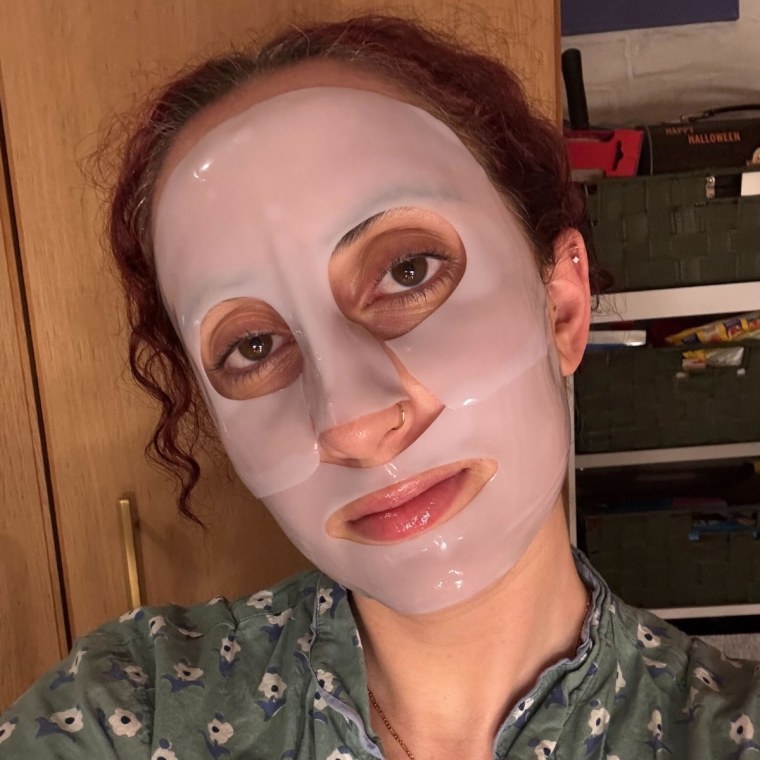
Best vegan serum
This serum has plant-based PDRN derived from Korean wild ginseng, which is a vegan alternative to fish-derived serums. It has a milky, fast-absorbing texture and combines PDRN with panthenol and ceramides to moisturize and repair damaged skin, according to the brand. It’s also highly rated with a 4.6-star average rating from 716 reviews on Amazon.
Best for sensitive skin
This gel sheet mask has plant-based PDRN derived from banana sugar spots, sodium hyaluronate (a smaller molecule form of hyaluronic acid) and collagen to firm, hydrate and smooth skin, according to the brand. The brand sent me a sample box to try out, and I’ve been reaching for it almost every night since. It’s super gentle on my sensitive skin, and my face looks and feels softer after I use it.
Best under-eye patches
K-beauty skin care brand Abib has a line dedicated to PDRN that includes an overnight mask, a lip mask and these under-eye patches. These products all have plant-based PDRN extract in it to even out skin tone and texture, support collagen products and create a healthy glow to the skin, according to the brand. They also have retinal, which is more powerful than retinol, to reduce fine lines and wrinkles. I’ve used these patches a few times since the brand sent them to me to try out, and I’m a big fan so far — my under eyes feel hydrated and brighter.
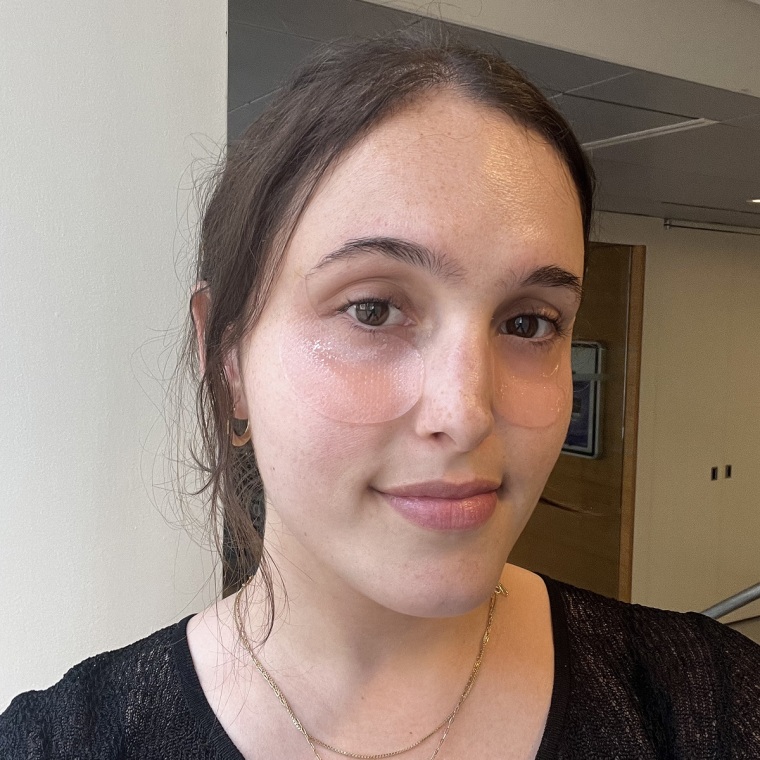
At NBC Select, we work with experts who have specialized knowledge and authority based on relevant training and/or experience. We also take steps to ensure all expert advice and recommendations are made independently and without undisclosed financial conflicts of interest.
- Dr. Mona Gohara is a board-certified dermatologist at Dermatology Physicians of Connecticut.
- Dr. Azza Halim is a board-certified anesthesiologist and physician with a focus in aesthetic medicine, anti-aging treatments and regenerative medicine.
- Dr. Purvisha Patel is a double board-certified dermatologist and owner of Visha Skincare.
- Dr. Nicole Y. Lee is a board-certified dermatologist and owner of Epoch Dermatology in Garden City, New York.
- Dr. Shuting Hu is a cosmetic chemist and founder and CEO of Acaderma.
- Corina Cardenas is a licensed aesthetician at Westlake Dermatology in Austin, Texas.
I’m an updates editor at NBC Select who focuses on beauty and wellness topics. For this article, I spoke to six experts, including board-certified dermatologists, cosmetic chemists and licensed aestheticians, about PDRN skin care, how to use it and whether it’s actually effective.
Catch up on NBC Select’s in-depth coverage of tech and tools, wellness and more, and follow us on Facebook, Instagram, Twitter and TikTok to stay up to date.
